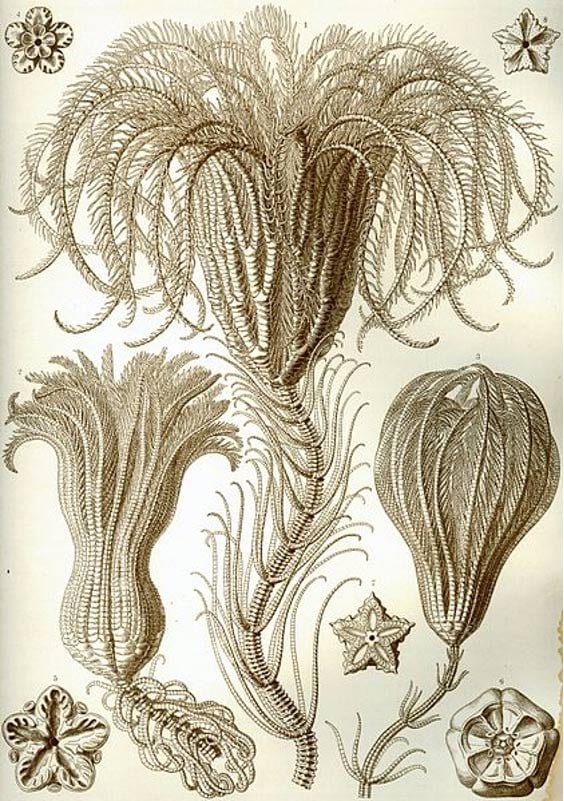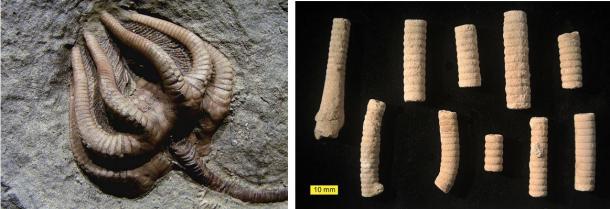A Russian research team known as the Kosmopoisk Group, which investigates UFOs and paranormal activity, claims to have found a one-inch screw embedded inside a rock that is 300 million years old. They say the screw is the remains of an ancient form of technology that proves extra-terrestrials visited Earth millions of years ago. However, scientists say the ‘screw’ is nothing more than a fossilized sea creature called a Crinoid.
The Russian team were investigating the remains of a meteorite in the Kaluga region of Russia in the 1990s, when they came across the strange object. A paleontological analysis was carried out, which revealed the stone was formed between 300 and 320 million years ago. The team also claim that an x-ray of the stone shows that another screw is present inside it. However, they have not allowed international experts to examine the object, nor have they revealed what the screw is made of.
Since the initial finding, much debate has surrounded the discovery, with scientists scoffing at the suggestion that it reflects an ancient screw and suggesting there is a much less exciting explanation.

Location of Kaluga Oblast in Russia, where researchers claim to have found a 300-million-year-old screw ( Wikipedia)
The Mail Online reports that scientists who have examined photographic evidence of the object say that there is a more earthly answer to the phenomenon – the ‘screw’ is actually the fossilized remains of an ancient sea creature known as a crinoid.
Crinoids are a species of marine animal that are believed to have evolved around 350 million years ago. They are characterized by a mouth on the top surface that is surrounded by feeding arms. Today, there are around 600 crinoid species, but they were much more abundant and diverse in the past.

A stalked crinoid drawn by Ernst Haeckel. ( Wikipedia)
Over the years, geologists have found countless fossils representing whole crinoids or their segments, some of which do resemble screws. Scientists have suggested that the screw-like shape seen in fossil samples may be the reversed-shape of the creature, which dissolved while the rock was shaped around it.

Left: The fossilized remains of a whole crinoid ( Wikipedia). Right: Fossilized segments of crinoids ( Wikipedia)
“It is thought that the fossilised creature in the mysterious rock is a form of ‘sea lily’ – a type of crinoid that grew a stalk when it became an adult, to tether itself to the seabed,” write the Mail Online. “However, some say that the stalks of crinoids were typically much smaller than the ‘screw’, with slightly different markings, and have discarded the theory.”
MORE
Nigel Watson, author of the UFO Investigations Manual told Mail Online: “Lots of out-of-place artefacts have been reported, such as nails or even tools embedded in ancient stone. Some of these reports are…misinterpretations of natural formations.”
“It would be great to think we could find such ancient evidence of a spaceship visiting us so long ago, but we have to consider whether extra-terrestrial spacecraft builders would use screws in the construction of their craft,” he added. “It also seems that this story is probably a hoax that is being spread by the internet, and reflects our desire to believe that extra-terrestrials have visited us in the past and are still visiting us today in what we now call UFOs.”
For now, the controversy surrounding the object remains very much alive, and unless the Kosmopoisk Group releases detailed information regarding the material of the ‘screw’, it is unlikely that consensus will be reached any time soon.